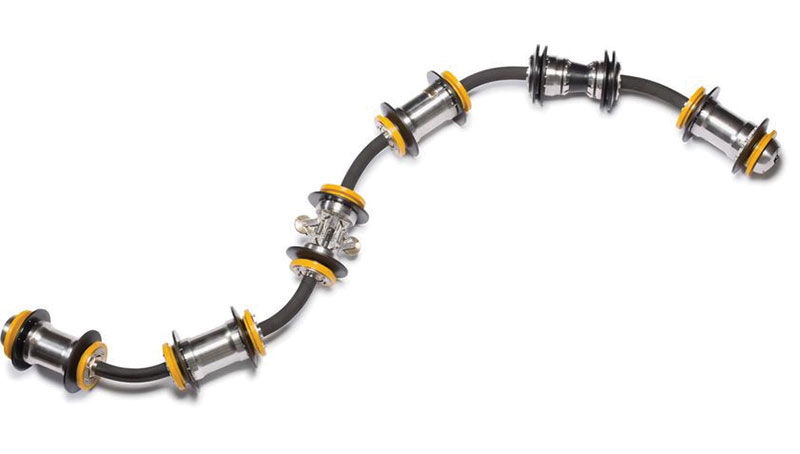July 2021, Vol. 248, No. 7
Tech Notes
Companies Merge Technologies to Enhance Pipeline Integrity
Special to P&GJ
Pipetel Technologies and Intero Integrity Services merged in January, combining the two inline inspection (ILI) companies, each with a track record of innovation in the space of unpiggable pipeline inspection.
The two companies use different technologies; however, the new technology and service offerings will be driven by the needs of clients and the two companies’ joint passion to enhance global pipeline safety.
Intero has provided more than 35 years of inspection services in unpiggable pipelines around the world. Intero focuses on inspecting unpiggable (or challenging) liquid product pipes with flexible, free-swimming, ILI tools equipped with ultrasonic (UT) sensors. These tools inspect pipes from 2 to 64 inches (51 to 1,626 mm).
Pipetel started in 2010 following years of research and development sponsored by NYSEARCH. Part of the Northeast Gas Association, NYSEARCH, a member-funded organization, focuses on technology research for the benefit of the natural gas industry and its customers in the United States.
Pipetel focuses on inspecting unpiggable natural gas and liquid terminal pipes with a fleet of tetherless robots, equipped with high-resolution magnetic flux leakage (MFL) sensors, deformation sensors, and live visual inspection. The company uses these MFL robots to inspect pipes from 6 to 36 inches (152 to 914 mm), providing certainty, safety and data for energy industries to reveal threats in unpiggable pipes.

Many immediately would consider the possibility of a fleet of Pipe Explorer robotic crawlers that not only acquire visual, MFL and deformation data, but include the addition of UT sensors to provide an even more complete picture of the integrity conditions of unpiggable pipes. A fleet of fully autonomous MFL robots, capable of inspecting much longer distances, may not be far from the horizon as well.
Similarly, some may speculate on the possibility of a fleet of highly agile, flexible, free-swimming or tethered, UT-based ILI tools, equipped with cameras, deformation sensors and high-resolution MFL sensors.
Looking to the future, operators face the growing problem of aging pipeline infrastructure, and the criticality of their integrity management has increased significantly. Since pipelines are still one of the safest and most reliable methods for the transportation of energy, pipeline operators continue to prioritize the extended usable life of their assets to serve their customers.






Comments